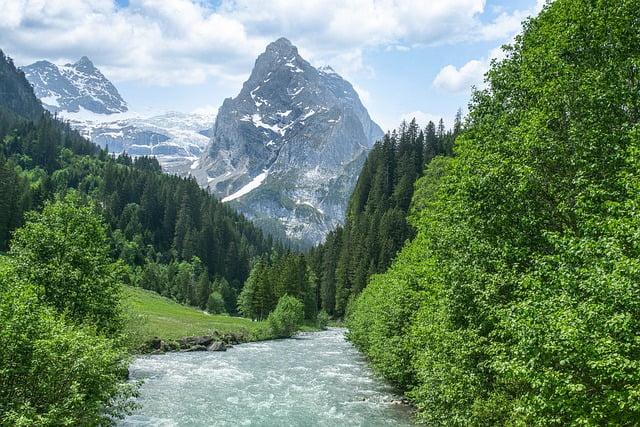The Uncharted Earth: Imagining a World Without Mountains

Mountains are some of the most awe-inspiring natural features on our planet. They shape landscapes, influence weather patterns, and provide habitat for diverse ecosystems. But have you ever wondered what our world would be like if there were no mountains? This is an attractive idea experiment that allows us to detect the intensive effect of these huge landforms on the Earth’s environment, climate, and life forms. In this blog post, we will be Imagining a World Without Mountains.
Altered Landscapes
Imagine a world without the majestic peaks of the Himalayas, the Rockies, or the Andes. The absence of mountains would dramatically alter the planet’s topography.

The familiar contours of valleys, canyons, and plateaus would become the dominant features, creating a much flatter landscape overall. Coastal areas, typically influenced by the interaction between tectonic forces and mountains, could undergo significant changes in the absence of mountains.
Read More: Best Places for Tracking In Uttrakhand
Climate Consequences
Mountains play a crucial role in regulating global climate patterns. They influence temperature, precipitation, and wind patterns. The absence of mountains would disrupt the redistribution of heat and moisture across the planet, impacting global climatic patterns.

This could lead to more uniform climates across latitudes, potentially resulting in fewer extreme weather events, such as hurricanes and cyclones. Conversely, certain regions that currently benefit from protection against prevailing winds due to mountains might experience more intense weather conditions in the absence of these geographical features.
Impact on Biodiversity
Mountains are biodiversity hotspots, harboring a wide range of unique species that have adapted to the challenging conditions of high altitudes. If mountains were absent, these species might need to find new habitats or evolve in different ways to survive.
Read More: Marvels of Nature: Top 10 Highest Waterfalls in India

The disruption of the interconnectedness of ecosystems, which often extends from valleys to mountaintops, could potentially lead to the decline or extinction of certain plant and animal species.
Water Resources and Hydrology
One of the most significant impacts of mountains is their role in regulating water resources. Mountains act as natural water towers, capturing moisture from the atmosphere and releasing it slowly over time, which sustains rivers and provides freshwater to downstream areas.

In a world without mountains, the distribution and availability of freshwater would undergo fundamental alterations. Areas that rely on mountain-fed rivers for agriculture, drinking water, and industry would face significant challenges.
Read More: The World’s Most Beautiful Mountain Rivers
Human Societies and Culture
Human civilizations have been deeply influenced by mountains. They have provided resources such as minerals, timber, and medicinal plants. They’ve also shaped cultural beliefs, often being revered as sacred or spiritual places.

Without mountains, the course of human history might have been profoundly different. The absence of these geographical features might have led to different settlement patterns, trade routes, and cultural practices.
Read More: 12 Best Natural Wonders in Alaska
Geoscience and Education
The absence of mountains would drastically change the field of geoscience. The examination of plate tectonics, the processes of mountain-building, and the dynamics of Earth’s crust would undergo a profound transformation.

Geologists wouldn’t have the opportunity to examine the forces that shape mountains and the geological history they reveal about the planet.




